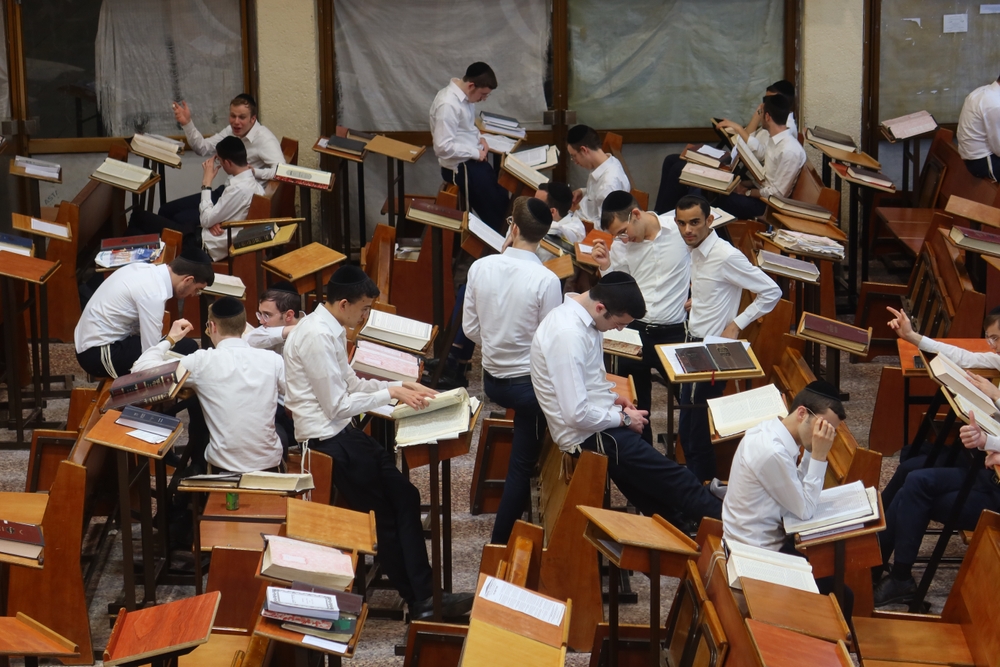What’s in a Jewish Name?
The birth of a baby is a very special time. There is a magic when a new soul enters the world. A clean and fresh beginning. Oh, and the feeling of holding your own child! It’s a joy which cannot be described. A gift only God can give.
And then comes the question of naming. What should we name the little angel?
So, what’s in a name? Is its import merely sentimental? Or is there something more to it?
According to Jewish tradition, there is indeed deep significance to a name. The name is not only a reference to the physical, but also the soul identifies by its given name[1]. In fact, the Talmud often expounds on the names of personalities mentioned in the Torah, and explains how their names included a hint of their destiny and actions[2].
In this vein, giving a child the name of a holy and righteous person empowers them with some of its bearer’s influence[3]. For this reason, Jewish parents often name their children after the great heroes and heroines of Jewish history. Some of the most popular names for Jewish boys include Moshe, Avraham, David, Shlomo, Yaakov, Yisroel, Yehudah, Yosef, Yitzchak, Levi, and Mordechai. For girls, Yehudis, Sarah, Rivka, Esther, Chana, Rachel, Leah, Miriam, Batsheva, Dina and Devorah are common, among others.
Conversely, naming a child after a wicked person is not a good idea, even if it seems cool and in vogue. The Chatam Sofer[4] (Rabbi Moshe Sofer zt”l. Rabbi of Pressburg, Hungary, he was born in Frankfurt, Germany, and lived from 1762 to 1839. He was considered one of the leading rabbis of his time) makes a fascinating and chilling observation. Korach, the infamous rebel against Moshe’s leadership, was actually not the first person to carry that name. He was preceded by a grandchild of Esav (Esau). Korach was a great man, who should have known better. Apparently, the correlation in name was part of the negative influence which brought about his disastrous end.
Similarly, the Midrash teaches us that our ancestors enslaved in Egypt merited redemption because they were careful not to change their Jewish language, dress, and names[5].
Naming After Parents and Grandparents
It is customary among Jews to name children after parents or grandparents[6]. This is a special way to honor them. (Still, as this can sometimes be a sensitive issue, great care should be taken to avoid conflict. Always remember that keeping the peace is paramount.)
However, within this custom, there are variations. Ashkenazic Jews don’t name after people who are still alive, while most Sephardic Jews do (but not all).
There is an order too. For Ashkenazim, the wife’s ancestors come first, then go the husband’s (usually following a pattern). For Sephardim, it’s the reverse. Sephardim go back one generation only (naming after both parents of each parent), while Ashkenazim usually go further back as well, naming after great-grandparents, and sometimes even farther. They usually start with closer generations though, and work backwards.
More factors
There are additional considerations for choosing a name, especially if the grandparent option is exhausted or not feasible. One is the parshah (Weekly Torah Portion). Sometimes a name will be chosen from the Haftorah as well (addendum to the weekly Torah Portion, read from Neviim). (My aunt is named Michal, after the original Michal, who was a daughter of Shaul HaMelech (King Saul), and wife of David Hamelech (King David), and is mentioned in a Haftorah.)
If the birth of the child corresponds with a chag (Jewish holiday) or another important Jewish occasion, a name associated with that event will sometimes be chosen. For example, a boy born around Purim might be named Mordechai. A girl born around Shavuot can be named Ruth.
The yahrtzeit (anniversary of death) of a prominent rabbi or righteous woman is another one. The legendary Rabbi Moshe Feinstein zt”l, one of the greatest halachic authorities of recent times, was born on the seventh day of the Hebrew month of Adar, which is the yahrtzeit of the man whose name he bore: Moshe Rabbeinu (Moses).
Some people consult with a rabbi to help them choose a good and fitting name. Conversely, there were some great rabbis[7] who refused to advise on this matter, not wanting to interfere with the ruach hakodesh (divine inspiration) granted to the parents. See further.
Divine Inspiration
Rabbi Yitzchak Luria zt”l, commonly known as the Arizal, famously says that parents are endowed with a form of ruach hakodesh (divine inspiration) when naming a child. This ensures the child will receive the name associated on high with their neshamah (soul)[8].
Still, this is not usually understood to mean that parents should be frivolous in choosing a proper name. Of course a lot of thought and judgment should go into choosing a name responsibly. Only then do we relax and say we did our part, and the rest is up to Hashem.
Bad Mazal
An interesting side note to this discussion is the issue of naming after someone who suffered misfortune, particularly someone who died young, or died an unnatural death. Sources[9] indicate that the mazal of the person can affect the one who is named after him or her.
What is mazal, you ask?
Mazal is often translated as “luck”. However, that is a bit loose, and even coarse. For the purpose of our discussion we’ll define it as sub-spiritual energy associated with the stars.
When and How is the Baby Named?
The custom among Jews is to name baby boys at their brit milah (circumcision). A special prayer is said, in which the child is given his name. The honor of naming, known as “kriat shem” is given to an attendee at the brit. The father whispers the name to him, which he then repeats.
Interestingly, it seems that this was not always the case. In the Torah, there are many indications of baby boys being given their names by their mothers, sometimes right at their birth. The Shevatim (sons of Yaakov [Jacob] who would eventually form tribes) were named by their mothers[10]. Binyamin, the youngest of the brothers, was named by his mother during his birth (she died during childbirth). The name she gave (Ben Oni) didn’t stick, though[11]. Clearly, she attempted to name him even before his brit.
We find a similar incident many years later, during the destruction of Shilo, with the wife of Pinchas the son of Eli, who also passed away during childbirth, but not before naming her son Ee Kavod[12].
Moshe Rabbeinu (Moses) was so named after he already completed nursing. The name Moshe wasn’t even given by his mother or father, but by Batya, the daughter of Pharaoh, who raised him[13].
With baby girls, it is more fluid. At a Torah reading in shul (synagogue), the father gets an aliyah (called up) to the Torah. The gabbai (conductor of services), or in some communities, the rabbi or another honorable individual, then recites a prayer called “Mi Shebeirach” and names the child as the father instructs him.
Being that the Torah is read Monday, Thursday, and Shabbat (in addition to holidays), there are various customs about which day to choose for naming. Some name at the first occasion possible, while others specifically wait until Shabbat. There is even a custom among certain communities to specifically wait until the second Shabbat after the baby is born[14].
Celebration
A brit is usually celebrated with a festive meal. For boys, the naming is incorporated with the brit, so it ends up as one affair.
With girls, many people celebrate the birth of the baby with a kiddush.
(For those who haven’t experienced the pleasure of a kiddush before: A kiddush is a sort of mini meal, served on Shabbat, after the morning prayer, during which the kiddush is recited. Some keep it simple, serving pastries, cake and some herring, with “ah bissel schnapps” [some booze]. Others make a more elaborate affair, adding in cholent, kugel and recently meat boards for Ashkenazim, or Lahmajin, Kibbe, and Sambusak for Sephardim.)
For those naming the baby on Shabbat, the celebration incorporates the occasion of the naming.
Those who name the baby during the week will sometimes make an even smaller affair after that prayer, to celebrate the naming, in addition to the main kiddush.
Jewish Baby Naming Traditions by Rabbi Pinchos Fried
[1] See below, paragraph about Divine inspiration
[2] See Yoma 83b, Sotah 34b, among many other sources
[3] See Sefer Chasidim Siman 244:363
[4] Chatam Sofer al HaTorah, beginning of Parshat Korach
[5] Shir Hashirim Rabbah 4:12, and Psikta Zutrata Parshat Va’eira 86:6.
[6] See Bereishit Rabbah Parshat Noach, Parshah 37:7
[7] The “Bais Yisroel” of Gur, among others
[8] Shaar Hagilgulim Hakdama 23
[9] Well-known concept, discussed by contemporary halachic authorities. Indication of this is referenced in Sefer Chasidim 244:363
[14] The Stolin-Karlin community


